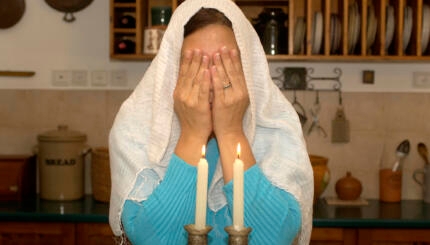Commentary on Parashat Vayakhel, Exodus 35:1-38:20; Numbers 19:1-22
Our sages note the juxtaposition of Shabbat and the Mishkan (Tabernacle) at the beginning of Parshat Vayakhel.
The Mishkan, the “resting place” of the Shechinah (divine presence), was built to serve as the focal point of religious life for the Jewish nation. But therein lay a latent danger — the possibility that the Jewish people would contrast the pristine spiritual world of the Mishkan with the mundane society at large and mistakenly perceive that any significant kedushah (sanctity), any closeness to God, could be achieved only within the confines of the Mishkan.
Such a perspective, however, undermines the very essence of the Mishkan’s message: “veshachanti betocham — and I [God] will dwell among them.” Ultimately, God desires not an oasis of kedushah (holiness), but a spiritual wellspring that quenches the thirst of a Jew for closeness to God, influencing, inspiring, and elevating all those encamped around it — not just inside it. God wishes to dwell among us.
Sanctifying Shabbat
Similarly, we are commanded to “remember the Sabbath day to sanctify it.” The Ramban (Nachmanides) points out that in addition to the obligation of reciting Kiddush on itself, another obligation exists: to maintain Shabbat as a focal point throughout the week. When an opportunity arises to purchase something special, such as food or clothing, one should purchase it for Shabbat.

Help us keep Jewish knowledge accessible to millions of people around the world.
Your donation to My Jewish Learning fuels endless journeys of Jewish discovery. With your help, My Jewish Learning can continue to provide nonstop opportunities for learning, connection and growth.
Shabbat, like the Mishkan, is not an isolated day of spirituality, distinct and separate from the other days of the week. Rather, the rest of the week revolves around Shabbat, and Shabbat elevates and infuses the other days with its kedushah.
This is the message of both Shabbat and the Mishkan: Kedushah is not isolated, but woven into the fabric of everyday life. A focal point for kedushah — in time and in place – -is indeed essential, in order to experience unadulterated kedushah. Nonetheless, that source of kedushah must enrich and elevate all of life, so that the Shechinah may reside “betocham” — among us.
Moreover, the relationship between Shabbat and the Mishkan is expanded due to the sin of the Golden Calf, prior to Parshat Vayakhel. The Meshech Chochmah (Rav Meir Simcha of Dvinsk, 1843-1926) explains that the root of Israel’s transgression was their attribution of intrinsic and absolute power to Moshe Rabbeinu (Moses our Teacher). When Moses did not return from Mount Sinai on the expected date, the people despaired and turned away from their faith.
Nothing is Intrinsically Religious
What they failed to understand, explains the Meshech Chochmah, is that nothing possesses intrinsic religious significance. People, places and things are valuable only insofar as they further one’s commitment to God and to . For this reason, Moses reacted to the sin of the Golden Calf by breaking the luchot (tablets), a dramatic demonstration to the Jewish people that their failure to uphold the commandments of God, caused the very words fashioned by His own Hand to lose their significance.
This tragic misconception left open the dangerous possibility that the Jewish people might once again attach themselves to an entity that appeared to possess intrinsic kedushah — the Mishkan. Was this not the dwelling place of God Himself? Such thinking, which distracts one’s focus from the proper emphasis on personal responsibility to God, had already brought disaster and tragedy once, and the Torah wanted to prevent it from reoccurring. Hence, Shabbat.
With the introduction of Shabbat at the beginning of our parsha, we are taught that although particular times and places possess Divinely-granted kedushah, ultimately our primary responsibility lies in our allegiance and commitment to fulfilling God’s will, which infuses that very kedushah into the totality of our lives.
Provided by the Orthodox Union, the central coordinating agency for North American Orthodox congregations.



